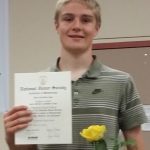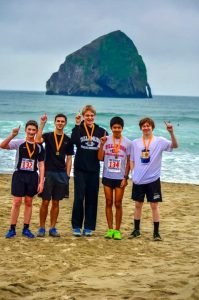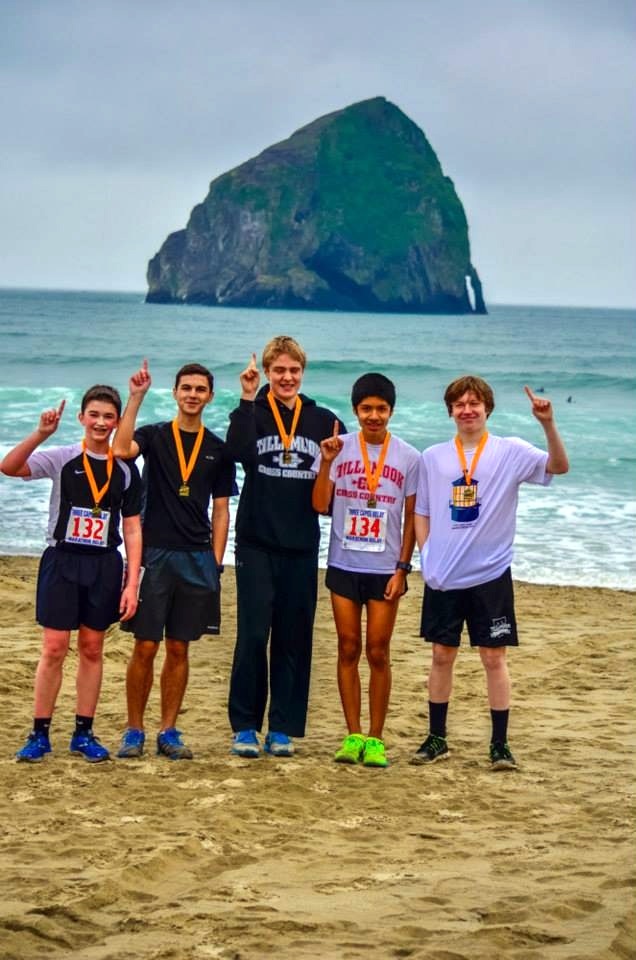EDITOR’S NOTE: Several months ago, Andrew Jenck started a series about his life with Asperger’s Syndrome, see below for a link to the first story. April is Autism Awareness Month, so we thought Andrew’s timing was perfect to continue the series this month. Pioneer readers are familiar with Andrew Jenck’s writing – from his popular movie reviews to commentary about movies and more, he always has something important, news worthy to share. He provides valuable insight into the communication and social challenges faced by many with autism spectrum disorders. Here’s Andrew’s “View from Here …” Part #2 – the Teens Years which can be difficult enough to navigate and then add autism.

Being a teenager is awkward for everyone, but such awkwardness is escalated when being autistic. Shortly before my pubescence, my mom grew concerned that my energy outbursts and lack of focus would hinder me in my adult years, so she revealed my diagnosis when I was 12. This came as a shock and disappointment to me. I thought I was unique by having these attributes, but I just had a condition that others had. At one point, someone even suggested I could fall off the autism spectrum and that made me feel that I could lose what made me who I am. In hindsight, knowing about my disability was a relief. I still had my own personality, I could disclose it with my friends and teachers, and be aware of tendencies (both positive and negative).
I went to Tillamook Adventist School for grades one through six where the classes and teacher staff were smaller, so everyone was more used to my autistic traits, even they didn’t know what autism was. It wasn’t perfect; sometimes I could go into a tantrum, but the teachers were familiar enough with my condition to alleviate the situation. Transitioning to the public school was a different experience. Here, classes were broken up into eight periods, each with different teachers and their own approach. I was overwhelmed, at first, as I needed to create a new routine and satisfy eight different teaching methods. The only way I could develop a new routine was persistence. Continue each day, focus on one class at a time, and take note of the classroom. To elaborate further on that last point, by observing how each classroom looked, and how the teacher presented the information. If I could get a different feel from the atmosphere of the room, then I could better transition to the next period.

To be clear, I’m not trying to demonize the bullies or their parents. The core of the issue was lack of awareness. One of the bullies ceased insulting me when he found out about my disability. Even I wasn’t perfect, as I’d insult or be judgmental towards other students with their own disabilities, not being aware of their feelings. If disabilities were a part of the core curriculum, then other students may be more empathetic. I could get easily annoyed at other behaviors, even ones that weren’t targeted at me. I lacked the social awareness and would be too preoccupied with my studies, resulting in my junior high years being sort of a blur.
High school was a more pleasant experience than the previous two years, as I settled into the honors classes, and saw the same people every day. Having a smaller group of students who intersected across classes, sports, and volunteer clubs helped them become more familiar with me and my tendencies. Conversations were easier, as I could get more comfortable with the students, common interests were blatant, and I could understand them better than I could with a larger group. The more exposure, the more familiar we got with each other. I would continue to get a bit better with social interactions as I would get more practice working on group projects and running for a growing cross-country team. Some issues persisted: longer discussions could exhaust me, and I zoned out when the topic didn’t interest me.
Running cross country and track proved to be a tremendous help, giving me physical exertion, to “run through” long thoughts, and granted me more social interactions. I had an excess amount of energy, something that persists to this day, which could be spent on running. The hours of practice allowed for greater focus on homework and other responsibilities. As previously stated, running gave me a group of peers with whom to regularly socialize. We didn’t just bond over love of the sport, but other subjects such as movies, music, annoyances with teachers, and our potential futures. Running allowed for self-expression and taught me the importance of socialization, giving me reasons to not be alone.
My teenage years were a mess and involved the common growing pains made more extreme, along with other issues from my Asperger’s. Nevertheless, I came out of that period feeling more self-accepting of myself and appreciating the people who accepted me even more. The key to successful living was familiarity: both concerning myself and my surroundings, and others with my autistic attributes. As I headed off for college, I would need to rebuild my social life, expanding myself to new challenges.
The Early Years of Asperger’s Syndrome (#1) – https://www.tillamookcountypioneer.net/the-view-from-here-the-early-years-of-aspergers-syndrome/


